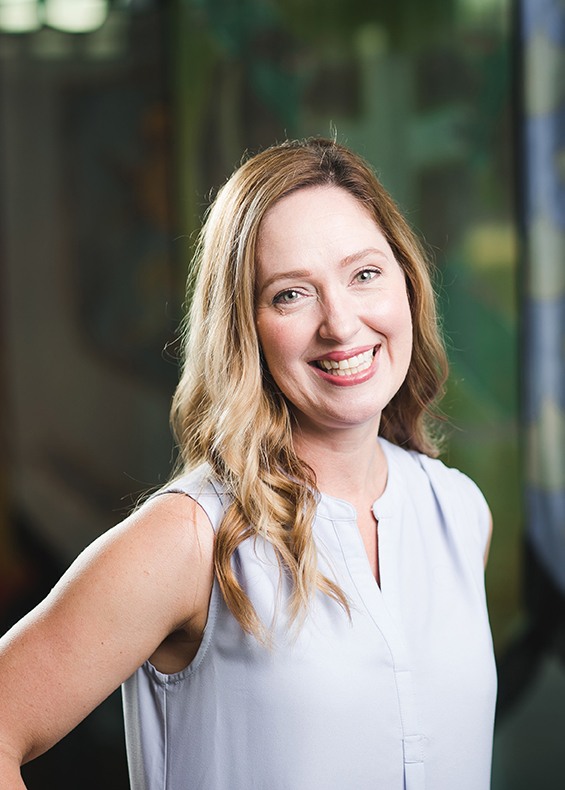Questions to Ask When Choosing a School
for Your Child
By Alicia Williamson
Choosing an educational path for your child is one of the most important decisions parents will make. There are so many options available to families that it can be difficult to know how to choose the right school. The variables that impact a family’s decision can seem endless as they begin the search for a place that will foster growth and allow their child to thrive. It might be tempting to start the search with questions like: What is the financial investment I will be making? What does a typical school day look like? How close to my home is the school? And while these questions are important, I would like to suggest that you should begin with a different set of questions. It is most important to understand what drives the decisions being made at a school and to make sure that the priorities of that school are in alignment with the priorities parents have set for their own families. As the Enrollment Director, here are a few questions I believe parents should prayerfully consider when searching for a school.
What is the school’s mission and how does that mission affect the experience of individual students?
As a family considers a school, the mission of the school should be clear and evident. It should not only be clearly communicated on the website and in marketing materials, but when parents visit the campus, they should be able to clearly see that mission in action. At Providence Classical School, our mission is to be a Christian school that uses the classical model to train students to impact their culture for Christ. This mission is actively considered in campus decisions made in the classroom, by administrators, and all the way up to the strategic level by the PCS Board. Our mission statement is constantly being taught and reviewed so that students understand what it is that we are trying to train them to do. Furthermore, Providence has a vision for our graduates. We want each one of them to be known for their Character, Knowledge, Discernment, and Communication. As a family considers a school, I would encourage them to look closely at the mission statement and vision of each school. Parents should ask themselves if the goals of the school are the same as those they’ve chosen for their child.
What is the school’s view on the role of parents in the education of their child?
Schools can have very different philosophies when it comes to their authority to educate children. PCS strives to operate alongside the family under the assumption that the education of young people is the primary responsibility of parents rather than the responsibility of the state or an educational institution. Parents searching for the right school should consider whom they believe is charged with the training of their child. At Providence, the role of our teachers can be described by the Latin term, in loco parentis, which means the in the place of the parent. We seek to provide parents with the support and tools to fulfill this calling but believe that Scripture clearly places the primary role of educator firmly on the shoulder of parents.
What can I expect in the area of discipline for my child at this school?
The word discipline can have a negative connotation for many people. The word can immediately conjure up images of punishment for misbehavior, but at Providence discipline is believed to be inherently positive. The word originates from the Latin word disciplina which means teaching, instructing, and educating. When parents understand that discipline is the process of making disciples, they should desire to know exactly how a school plans to make a disciple of their child. At Providence, our goal is much larger than simply managing the behaviors of our students. We desire that students would obey classroom and school rules to honor God, not simply to get a gold star or to keep a behavior clip on green. By removing external motivators for obedience, we can focus on the biblical principles of confession, repentance, forgiveness, and restoration.
How does the school determine curriculum and what my child would be taught?
Parents need to be confident that the investment they are making in their child’s education will result in students who are knowledgeable and wise in a variety of areas. No school could possibly teach students everything there is to know, so how does a school decide exactly how and what to teach? Do they look to state or national standards? Do they follow lessons set forth by a textbook company?
At Providence, we use the time-tested classical model and stress the unity of knowledge across subjects. For thousands of years, the trivium has been the method for equipping students with the tools for learning. In the early grammar years, teachers take advantage of the natural giftedness at memorization and teach students with the rules and basic facts in all the subjects, building a strong foundation for further study. As students approach adolescence, they are no longer content to accept what their parents and teachers tell them is true. Rather, they want to ask lots of questions and find out the answers for themselves. Through the study of formal logic, teachers help students pass through this necessary phase of development, guiding them as they learn to reason and think logically. Additionally, debate is incorporated as much as possible, giving students an opportunity to learn to argue in a winsome and respectful way. Finally, PCS high school students in the rhetoric years engage actively in their education, reading widely and coming to class prepared to have Socratic-style discussions. They learn to think deeply, and communicate effectively in every class, including math and science. All of the subjects taught at Providence are taught as part of an integrated whole with the Scriptures at the center.
This is by no means an exhaustive list of questions that a family should ask when searching for the right school for their child, but I hope that they will serve to help guide parents who are beginning the process of seeking the best fit school to grow and nurture their child. If you believe that Providence could be that school, I would be honored to meet with you and give you a tour.
Train up a child in the way he should go: and when he is old, he will not depart from it. — Proverbs 22:6
Click here to schedule a school tour and to meet with Enrollment Director, Alicia Williamson.
For more information on Classical education, visit the Association of Classical Christian Schools website.









